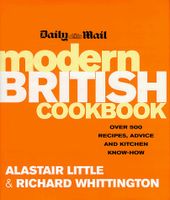Advertisement
Mustard
Appears in
By Alastair Little and Richard Whittington
Published 1998
All mustards are made from the same black and brown seeds, which are usually ground into a powder, though roughly crushed, mild grain varieties are equally valid mustards. Only when the powder is mixed with a liquid are the hot-tasting oils released and with them the heat delivered to the tongue. These oils are literally volatile, that is unstable, and their heat is lost during cooking, so even a lot of Colman’s mustard exposed to temperatures in excess of 40°C / 100°F will lose all its ferocity. Mustard should therefore always be added towards the end of cooking. If cooked too long it not only loses its ability to excite but also becomes bitter.



